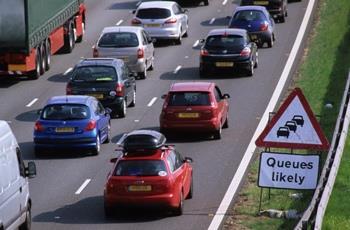
The Department for Transport (DfT) has published the terms of reference for its study into the future funding of England’s roads, which could pave the way for road tolling.
In the spring (CM 22 March) David Cameron, the prime minister, set out his vision for the strategic road network, which included exploring whether it could be sold off along the lines of the privatisation of the UK’s utilities.
The DfT, which is undertaking the study with the Treasury, has now published the points it will assess as part of the process before reporting back to the prime minister this autumn.
Separately, the government has also committed to publishing a 20-year strategy for the national road network. This will be informed by the study, and comes in response to Alan Cook’s November review of the strategic road network.
Although major changes to the Highways Agency are on hold until the outcome of the study is known, the government has also committed to introducing outcome based performance funding for the agency that will be in place for the financial year 2013/14.
Justine Greening, Secretary of State for Transport, says: “Our motorways and major A-roads are the backbone of Britain, powering the economy and keeping families together.
“My goal is to transform the Highways Agency in to a best in class organisation. That’s why I have agreed to many actions Alan Cook recommends.
“Together with the terms of reference for the feasibility study, this constitutes an ambitious integrated programme for reforming the road network in both the short and long term.”
Feasibility study on roads reform
- The study will consider how different funding models could apply to roads – subcontracting, the privatisation route etc
- The investment needs of the road network
- Payment – how different funding models could be paid for and their interaction with existing taxation. It will also determine the role of tolling in the provision of new infrastructure, but not existing capacity
- The role of regulation – how a regulator could ensure road users' interests are protected.
- Value for money and efficiency
- Practical delivery issues.














